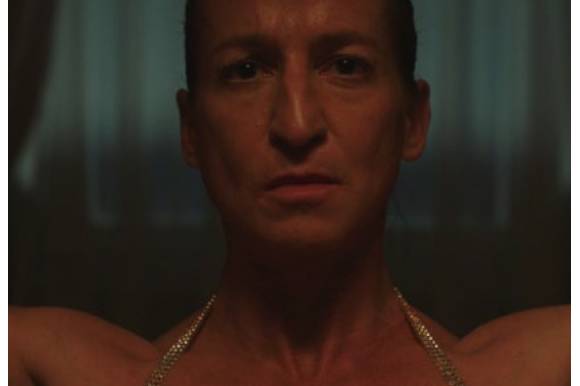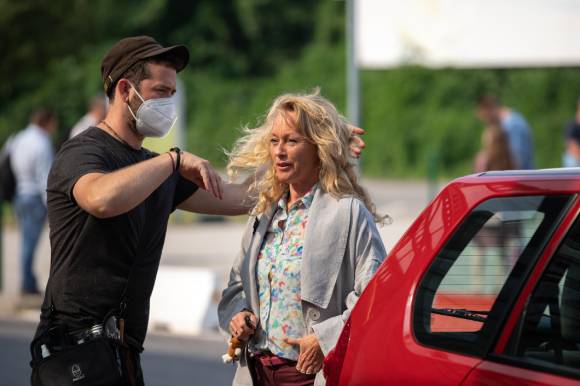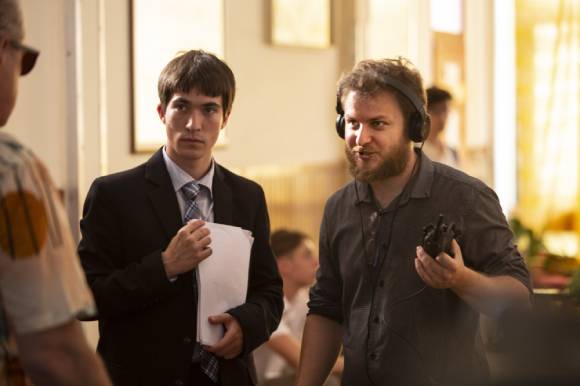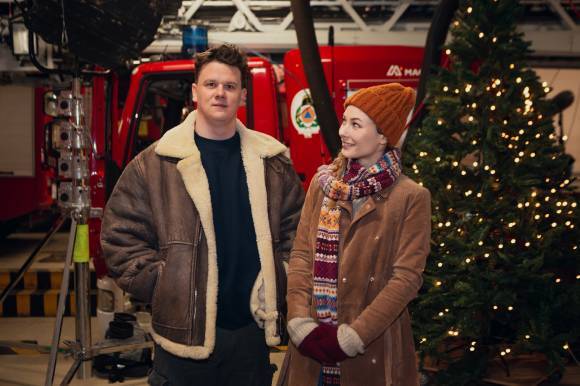These numbers exceed previous records. An average of 300 films are produced in Hungary every year, official registers show. The total expenditure exceeded 100 billion HUF / 272 m EUR for the first time in 2016, while in 2019 a total of 164,4 billion HUF / 446 m EUR was spent directly on film production. The increasing trend – with the exception of 2020 – is persistent. Due to rapid and effective measures, COVID-19 couldn’t hinder the growth of the film industry in 2021.
the first time in 2016, while in 2019 a total of 164,4 billion HUF / 446 m EUR was spent directly on film production. The increasing trend – with the exception of 2020 – is persistent. Due to rapid and effective measures, COVID-19 couldn’t hinder the growth of the film industry in 2021.
The NFI (National Film Institute - Hungary) reacted quickly to the new challenges caused by the pandemic in 2020, by introducing safety regulations, granting financial aid, and easing the entry of US cast members. Moreover, the NFI published a health protection plan, helping productions filming in the country: cast and crew were tested regularly; protective equipment was provided for everybody; the number of people on location was minimised; and compliance with hygiene rules was monitored.
Due to these measures, international productions only stopped for a few months in the spring of 2020 and they were able to resume work in the summer of 2020. Most local productions didn’t even stop during the first wave of COVID-19, while the later pandemic waves didn’t cause any major interruptions to the ongoing shoots.
”The engine of development is the production of high-budget, international films, which are attracted to Budapest by the world-renowned Hungarian film tradition, wonderful locations, state-of-the-art studios, up-to-date expertise, and the tax rebate scheme. Thanks to the supportive attitude of the government, the excellent domestic production companies and the trust of our foreign partners, even the pandemic couldn’t break the growing trend,” said the Hungarian Film Comissioner, Csaba Káel.
In the autumn of 2021, Dune was released in the cinemas. This film was partly produced in Hungary and analysts say it could give another big boost to the local film industry. A number of world stars arrived in Hungary this year as well. Cate Blanchett, Kevin Hart and Jamie Lee Curtis worked on Borderlands; Oscar Isaac and Ethan Hawke were in Budapest filming Moon Knight, the newest Marvel series; Emma Stone, Mark Ruffalo and William Dafoe were shooting Poor Things directed by Yorgos Lanthimos; and Mel Gibson appeared in the Hungarian capital  in November for the mini-series The Continental.
in November for the mini-series The Continental.
The National Film Institute in Hungary was granted 1 billion HUF by the National Cultural Council as part of their financial package to compensate for the difficulties experienced by the cultural sphere. The fund was supplemented by the NFI's own budget and it was allocated to help theatres and filmmakers. It was also used to produce 16 ”crossover” films, based on stage plays and filmed outside the theatres, destined to be shown in television. The productions were filmed in late 2020 and 2021, and some of them have already been shown on television, such as the comedy Ecc-pecc directed by Isti Madarász.
The filming of the first Hungarian Christmas romantic comedy Christmas Flame / Nagykarácsony started at the very end of 2020 and ended in the summer of 2021. Director Dániel Tiszeker’s feature was released in cinemas at the end of November. The filming of Gentle / Szelíd also started at the end of last year - László Csuja and Anna Nemes’ film is a Hungarian/German coproduction, and this is the first Hungarian feature compete at the Sundance Film Festival. The biggest Hungarian production of 2021 is Hadik directed by János Szikora. The shoot of the historical adventure film began in September 2021, and the NFI supported the production with 1.6 billion HUF / 4.35 m EUR.
Yvonne Kerékgyártó’s second feature We Started Together / Együtt kezdtük was also shot in 2021. The Incubator program, which supports first-time directors, made it possible to produce Kukkoló directed by Mátyás Szabó, Heights and Depths / Magasságok és mélységek directed by Sándor Csoma, Total Eclipse / Teljes napfogyatkozás directed by Katalin Moldovai, and  Zanox directed by Benő Baranyi this year. The shoot of Blokád, which tells the story of József Antall, the first freely elected Prime Minister post-Hungary’s socialist era, started in October.
Zanox directed by Benő Baranyi this year. The shoot of Blokád, which tells the story of József Antall, the first freely elected Prime Minister post-Hungary’s socialist era, started in October.
Several coproductions with Hungarian participation (Evolution, Ordinary Failures, Bunker, Winter Dream) were made this year; the NFI supported the production of several television films and series; and independent Hungarian productions were also filmed. Director György Mór Kárpáti went into production independently with his second feature Summer to Come, which takes place at a school camp and deals with the love triangle of three teenagers and the subsequent suicide of one of them.
Renowned directors Erik Novák, György Pálfi and Ferenc Török are also working without state support. They are filming a five-part mini-series based on Arthur Schnitzler's novel Der Reigen. In the meantime, HBO's new Hungarian series The Informant / A besúgó, about the Hungarian democratic opposition in the eighties, is to be unveiled in 2022.




















